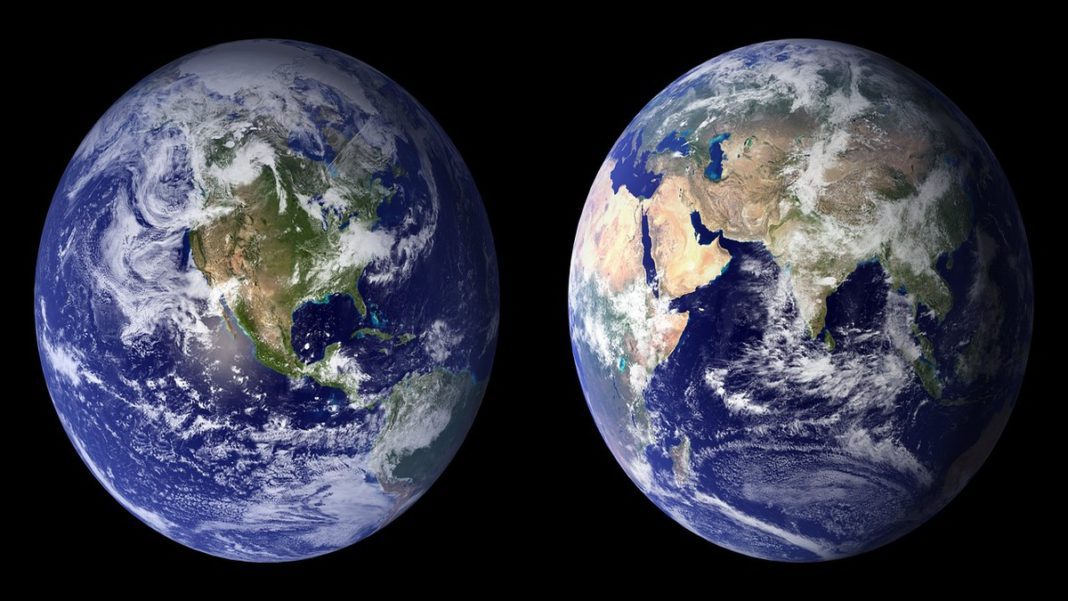SOUTH KOREA: Groundwater pumping has long been a crucial activity to meet the world’s increasing water demands. However, a recent study published in the journal Geophysical Research Letters has shed light on an unexpected consequence of this widespread practice.
It appears that groundwater pumping can influence our planet’s climate by causing the Earth to tilt and undergo rotational changes.
Unveiling the study findings
The study, led by Ki-Weon Seo, a geophysicist at Seoul National University in South Korea, utilized advanced modelling techniques to understand the relationship between groundwater pumping and the Earth’s rotational changes.
During the study period, it was discovered that a substantial amount of water had been redistributed in western North America and northwestern India, resulting in the eastward shift of the Earth’s tilt by nearly 80 centimetres between 1993 and 2010 alone.
This research further revealed that groundwater redistribution has the most prominent impact on the drift of the Earth’s rotational pole among various climate-related factors.
While previous studies estimated that humans pumped 2,150 gigatons of groundwater from 1993 to 2010, this groundbreaking research provided the validation necessary to understand the true influence of groundwater pumping on the Earth’s spin.
The role of groundwater redistribution in Earth’s rotation
The study’s model, which initially considered only ice sheets and glaciers, could only accurately match the observed polar drift once the researchers incorporated the scenario of groundwater redistribution.
Without accounting for the impact of groundwater pumping, the model’s accuracy was off by a significant 78.5 centimetres, equivalent to 4.3 centimetres of drift per year.
These findings unequivocally establish the profound role of groundwater redistribution in Earth’s rotational changes.
Conservation efforts and potential climate impact
Recognising the substantial impact of groundwater pumping on the planet’s spin and potential climate ramifications, the study emphasises the need for concerted efforts to slow down groundwater depletion rates.
Although the rotational pole typically experiences natural changes of several metres within a year, the cumulative effect of groundwater pumping over extended periods can have long-term consequences for our climate.
While attempting to alter the rotational drift through conservation approaches in sensitive regions is theoretically possible, it requires sustained efforts spanning decades.
Therefore, it becomes imperative for countries to implement effective groundwater management strategies and prioritise sustainable water practices to mitigate the adverse effects on Earth’s spin and the potential climate impact.
Expert opinions on the study
Surendra Adhikari, a research scientist at NASA’s Jet Propulsion Laboratory, lauds the research findings as a remarkable contribution to the field. In a statement, Adhikari acknowledges the study’s quantification of the role of groundwater pumping in polar motion, highlighting its substantial nature.
Adhikari’s 2016 paper on water redistribution influencing rotational drift serves as a precursor to the current study, further emphasising the importance of understanding the intricate relationship between groundwater pumping and the Earth’s spin.
Conclusion
The study published in Geophysical Research Letters presents compelling evidence that groundwater pumping can indeed impact Earth’s spin and subsequently influence our planet’s climate.
The research highlights the need for sustainable groundwater management practices to safeguard our environment and mitigate potential long-term climate consequences.
As we continue to expand our understanding of the intricate dynamics between human activities and the Earth’s systems, it is crucial to prioritise responsible water usage and conservation.
Also Read: Climate Change to Push Species over Abrupt Tipping Points: Study



